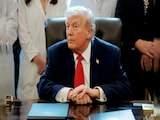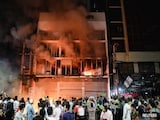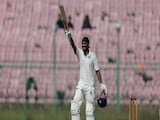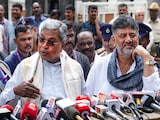Prime Minister Narendra Modi on Friday announced a series of initiatives to support the Global South that included a project to provide essential medical supplies to the developing nations in case of natural disasters or humanitarian crisis, and a technology initiative to share India's expertise in areas like space technology and nuclear energy.
In his address at the concluding session of the two-day Voice of Global South virtual summit, PM Modi also unveiled plans to set up a 'Global South Centre of Excellence' for research on development solutions that can be scaled up and implemented around the world.
At a media briefing, Foreign Secretary Vinay Mohan Kwatra said 125 countries including 47 from Africa, seven from Europe and 29 from Latin America and Caribbean region participated in the summit and it was "truly a voice" of the Global South with the participants "strongly" and positively responding to the Indian initiative.
In his remarks, PM Modi described the summit as the "largest-ever" virtual gathering of the Global South.
India organised the summit to give voice to the concerns and challenges facing the developing nations amid increasing geo-political turmoil. The list of participating nations did not figure Pakistan, Ukraine and China.
Asked whether India's hosting of the summit was indication that it was looking at an alternative to UN to address certain concerns, Mr Kwatra said "We often find that the problems, perspectives, concerns, priorities often do not get adequately addressed in the established institutional framework." He said India felt that there is a need for that "voice to be heard, for those priorities to be understood, for those concerns to be addressed and for those perspectives to be fully factored in across a set of all institutional mechanisms, including particularly the G20".
On whether India was in touch with China, he said New Delhi has robust cooperation with G20 members and under that rubric consulted all members of the grouping. But the focus of the Voice of Global South virtual summit was on countries that are not part of G20.
In his remarks, the prime minister also announced that New Delhi will institute new scholarships for students from developing countries to pursue higher education in India and said a new forum to connect young officers of foreign ministries of the developing countries will be set up.
Talking about the impact of geopolitical tensions, Modi said they caused "sharp swings" in international prices of food, fuel, fertilizers and other commodities, besides distracting "us from focusing on our development priorities.
"To address this geopolitical fragmentation, we urgently need a fundamental reform of the major international organisations, including the United Nations Security Council and the Bretton Woods institutions," he said.
India plans to channel the concerns of the Global South into discussions at the G20 during its presidency.
"I would now like to announce a new 'Aarogya Maitri' project. Under this project, India will provide essential medical supplies to any developing country affected by natural disasters or humanitarian crises," PM Modi said.
"For synergising our diplomatic voice, I propose a 'Global-South Young Diplomats Forum', to connect youthful officers of our foreign ministries. India will also institute 'Global-South Scholarships' for students from developing countries to pursue higher education in India," he said.
In his remarks, the Prime Minister said that India's approach towards development partnerships has been consultative, outcome oriented, demand driven, people-centric, and respectful of the sovereignty of partner countries.
"I am happy to announce that India will establish a 'Global-South Centre of Excellence'. This institution will undertake research on development solutions or best-practices of any of our countries, which can be scaled and implemented in other members of the Global South," he said.
"India has also made great strides in areas like space technology and nuclear energy. We will launch a 'Global-South Science and Technology initiative' to share our expertise with other developing nations," he added.
The prime minister said all the developing countries agree on the importance of South-South Cooperation, and collectively shaping the global agenda.
"In the field of health, we share an emphasis on promoting traditional medicine, developing regional hubs for healthcare, and improving mobility of health professionals. We are also conscious of the potential of quickly deploying digital health solutions," he said.
In the area of banking and finance, PM Modi said deployment of digital public goods can increase financial inclusion in developing countries at great scale and speed.
"We all agree on the importance of investing in connectivity infrastructure. We also need to diversify global supply chains, and find ways to link developing countries to these value chains," he said.
The prime minister noted that developing countries are united in believing that the developed world has not fulfilled their obligations on climate finance and technology.
"We also agree that apart from controlling emissions in production, it is equally important to move away from 'use and throw' consumption, towards more environment friendly sustainable lifestyles," he said.
PM Modi highlighted challenges of Covid, rising prices of fuel, fertilisers, food grains and increasing geo-political tensions and said they have adversely impacted the developing countries.
"The last three years have been difficult, especially for us developing nations. The challenges of the Covid pandemic, rising prices of fuel, fertilizer and foodgrains, and increasing geo-political tensions have impacted our development efforts," he said.
"However, the start of a new year is a time for fresh hope," he added.
Listing India's global outlook, he said its philosophy has always seen the world as one family and that the developing countries desire a globalisation that does not create "climate crisis or debt crisis".
"We want a globalisation that does not lead to unequal distribution of vaccines or over-concentrated global supply chains. We want a globalisation that brings prosperity and well-being to humanity as a whole. In short, we want a 'human-centric globalisation'," PM Modi said.
He said India's G20 Presidency will attempt to voice the views of the Global South on these important issues.
"All these ideas, shared by the wider Global South, will provide inspiration to India as it tries to shape the agenda of the G20, as well as in our own development partnerships with all of your nations," he said.
(Except for the headline, this story has not been edited by NDTV staff and is published from a syndicated feed.)















